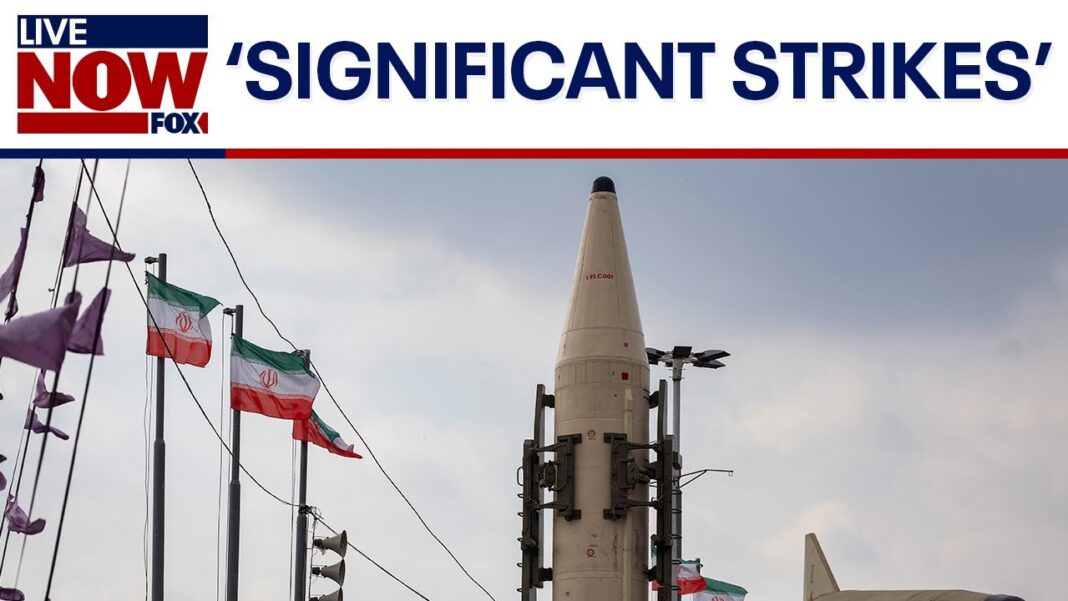|
Getting your Trinity Audio player ready...
|
The Wall Street Journal: U.S. Intelligence Reports Indicate Israel is Weighing Strikes on Iranian Nuclear Sites
Edited by: TJVNews.com
In a recent intelligence assessment conducted during the final days of the Biden administration, U.S. agencies concluded that Israel is seriously contemplating military strikes on Iran’s nuclear facilities within the year, according to The Wall Street Journal. The report suggests that Israel perceives a unique strategic opportunity to act against Tehran, given Iran’s weakened position following a series of military setbacks.
According to The Wall Street Journal, the intelligence report was finalized around the New Year, as President Biden’s administration prepared for the transition of power. Analysts within the intelligence community warned of the potential for an escalation in military hostilities in the Middle East, particularly in light of Iran’s degraded capabilities over the past year. These findings highlight Israel’s ongoing concern about Iran’s nuclear ambitions and its apparent determination to take preemptive action.
Officials familiar with the intelligence assessment told The Wall Street Journal that Israel is expected to seek backing from the Trump administration, believing that the new president would be more inclined to support military action than his predecessor. Israeli officials reportedly fear that the window for preventing Iran from developing a nuclear weapon is closing, and they see Trump as a more likely ally in a decisive strike on Iran’s nuclear infrastructure.
A subsequent report, produced by U.S. intelligence agencies and delivered during the initial days of Trump’s administration, reaffirmed the conclusion that Israel is weighing direct military action against Iran’s nuclear sites, according to The Wall Street Journal. The report highlights the challenges Israel faces in executing such a mission and the likely necessity of U.S. military support. Given the complexity and fortification of Iran’s nuclear facilities, American munitions and logistical assistance would be critical to a successful Israeli strike.
Israeli Prime Minister Benjamin Netanyahu’s office has not responded to The Wall Street Journal’s requests for comment, and the Israeli military has also remained silent on the matter. However, Israeli leaders have repeatedly hinted at the possibility of increased military action against Iran. Defense Minister Israel Katz stated in November that “Iran is more exposed than ever to strikes on its nuclear facilities,” emphasizing that the Israeli government views this as a rare opportunity to neutralize what it considers an existential threat.
Iran, which has historically threatened retaliation against any military action targeting its nuclear program, has been significantly weakened following Israel’s strikes on its conventional military sites last year, The Wall Street Journal reports. Additionally, Iran’s regional allies, including Hezbollah and Hamas, have suffered substantial losses, further limiting Tehran’s ability to respond effectively to potential Israeli attacks.
During the presidential transition, some members of Trump’s team reportedly considered the feasibility of an Israeli-led strike, even discussing the possibility of U.S. forces participating in a coordinated bombing campaign, The Wall Street Journal revealed. However, now that he is in office, Trump has signaled a preference for diplomacy over military escalation. He has reimposed his previous “maximum pressure” strategy on Iran and has left open the possibility of supporting Israeli strikes if negotiations with Tehran fail.
Despite widespread speculation, Trump took to Truth Social to downplay fears of imminent conflict. The Wall Street Journal notes that in a recent post, he wrote, “Reports that the United States, working in conjunction with Israel, is going to blow Iran into smithereens, ARE GREATLY EXAGGERATED.” Nonetheless, his administration’s policies indicate a tougher stance on Iran, and military action remains an option if diplomatic efforts falter.
When contacted by The Wall Street Journal, a spokeswoman for the Office of the Director of National Intelligence declined to comment on the matter. Similarly, a National Security Council spokesman stated that the administration does not discuss intelligence matters publicly. These refusals to comment leave open the question of how the U.S. might respond if Israel does proceed with its plans.
Meanwhile, Tehran has been signaling its willingness to engage in diplomatic discussions. The Wall Street Journal reported that Iran’s foreign minister recently stated on state television that his country is open to negotiations with Washington. “If the main obstacle for the U.S. is Iran pursuing nuclear weapons, then that can be resolved,” he said, reiterating Iran’s official stance that it does not seek nuclear arms.
As tensions continue to simmer, The Wall Street Journal’s reporting illustrates the precarious nature of the situation. Whether Israel will ultimately proceed with a military strike on Iran’s nuclear facilities remains uncertain, but the intelligence assessments and strategic calculations at play suggest that 2025 could be a pivotal year for Middle Eastern stability.




